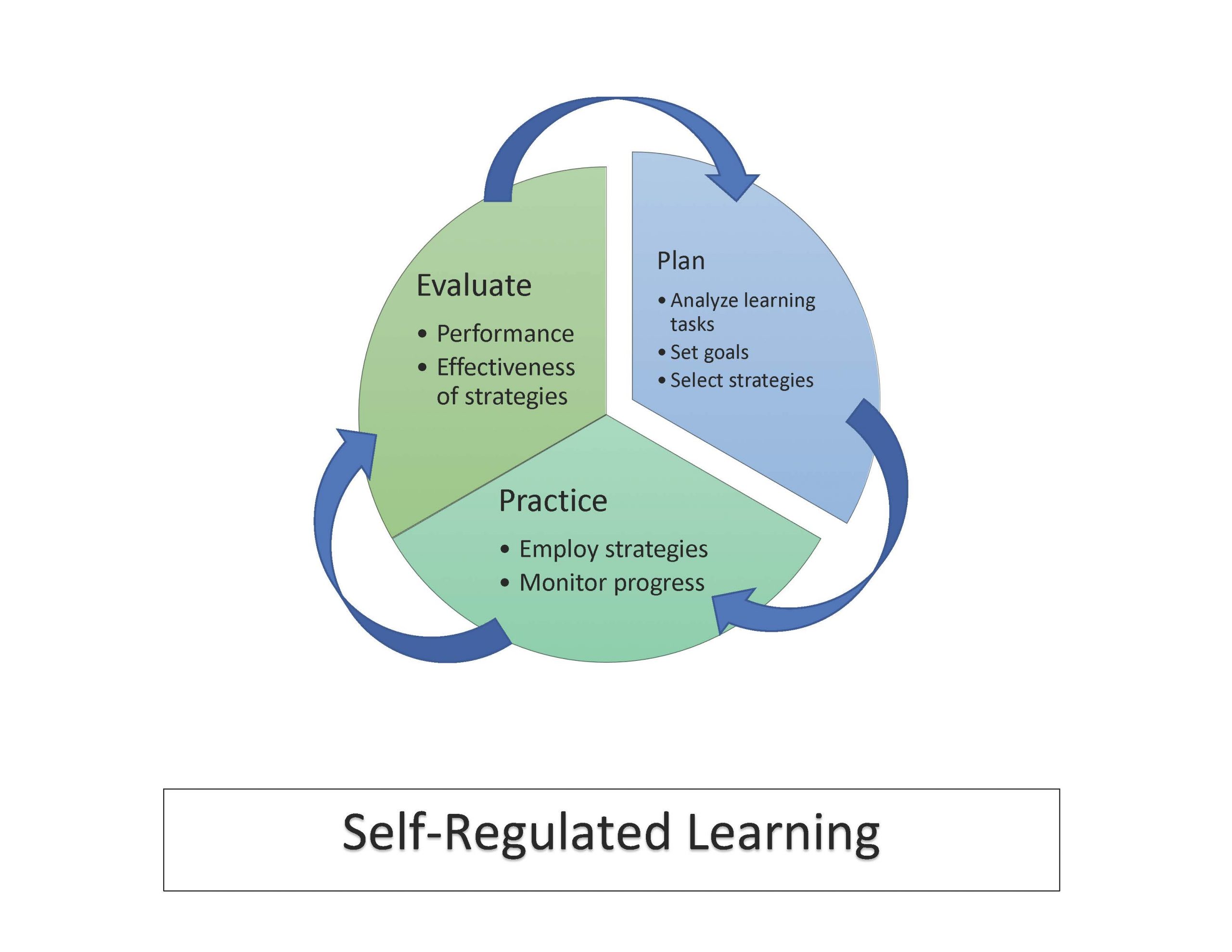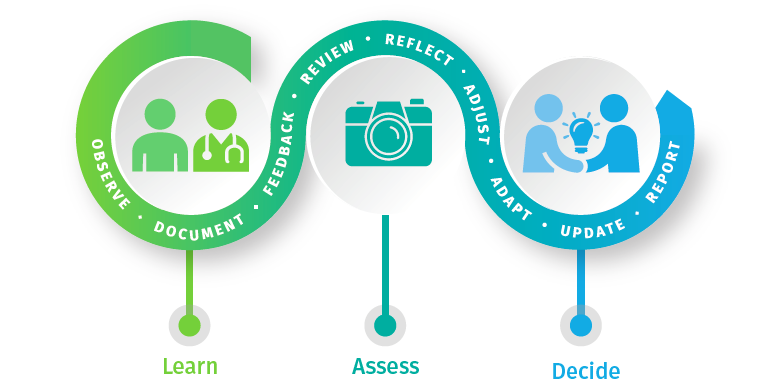The Periodic Review of Progress (PR) is a pivotal component of the Resident Assessment System. It provides continuity of guidance and educational planning. This page introduces the Periodic Review, covering content and preparation.
Residents want to know how they are doing. The training program wishes to actively engage residents in the interpretation of their assessment information and educational planning to foster self-regulated learning as part of professional skill-building. The preceptor assessment information is used in The Periodic Review.
The Periodic Review of Progress allows for residents to have :
- Continuity of a relationship-based guided reflective review, and interpretation of their assessment information over the 2 years of the program.
- Time with a competency coach outside of the clinical context,
- Practice the fundamental self-regulated learning skill that makes for an effective life-long learner.
- Bespoke adjustment of the learning plan.
The Periodic Review:
- Is a face-to-face meeting of 30 to 45 minutes between the Resident and Site Director or designate as a competency coach,
- Occurs, at a minimum, every 4 months over the course of the program.
- Requires good quality assessment data and preparation,
- Results in an updated bespoke learning plan.
The resident's role is to present evidence of their growing competence in all the 9 Core Domains and 43 Core Activities. As part of the preparation, the resident needs to review:
- Assessment information acquired since the previous PR
- All their Field Notes, and end of shift forms,
- All In Training Assessment Reports
- Any other requirements they have completed (modules, scholarly activity, academic presentations, and more)
- Write a paragraph to reflect on a particular aspect of training - for example, a specific CanMEDS-FM role, as part of preparation.
In particular, residents are asked to reflect on their strengths and gaps in learning to inform the next phase of learning and direct the next assessment targets to where they will be most helpful - the obvious and not so obvious "gaps". This is where preceptor narrative comments on Field Note and In-Training Assessment Report are the most useful to foster learning.
Over the 2 years of the program, Residents will have 6 Periodic Reviews.
The content discussed at the Periodic Review optimally is tailored to the stage in the program, the needs of the resident, and the requirements of the program as they arise.
Some suggestions include:
- Scheduling an Early Periodic Review, particularly for Residents who are involved in the pilot of 2022 Transition To Residency - Direct Observation with Coaching.
- Use of the R1 to R2 Transition Benchmark at the 3rd Periodic Review
- Residents are encouraged to try the Resident Self-Assessment of confidence in the Core Domains and Activities prior to the last 6 months of their program
- Timely discussion about Scholarship projects, Evidence-Based Medicine, and Behavioral Medicine goals.
Click here for the Resident view of the value of the Periodic Review
A good Periodic Review has the following elements:
- Both the Resident and Competency coach are prepared for the discussion
- The assessment information is available and has been reviewed by both for themes in the narrative that characterize strengths and gaps
- Previous gaps have assessment information that demonstrates these are no longer a concern. (Field Notes are very useful for this)
- Other assessment information is discussed (e.g. Exam prep, video reviews, scholarly work), to develop a picture of overall progress.
- The reflective paragraph is reviewed, and, if need be, the Reflective Rubric is used to foster reflective writing.
- The discussion focuses on both strengths and gaps, and is reflective and collaborative,
- There is check-in on career planning and wellness
- There is time and safety for residents to bring forward concerns that might not otherwise be discussed.
- A clear high-level learning plan is sketched out
- The learning plan is shared by the resident with the next cohort of preceptors.
The resident should leave with a clear idea of what to focus on for their upcoming rotations and academic curriculum.
Learning Plans are for everyone and are part of the Periodic Review Process.
At the Periodic Review, it is desirable that a high-level plan for learning that addresses some specific areas to target, is collaboratively sketched out. Ideally, this should be noted on the Periodic Review Form, and a copy given to the Resident to discuss with preceptors for the upcoming 4 months.
The plan need not be detailed and should address both filling gaps in learning, and enriching strengths.

